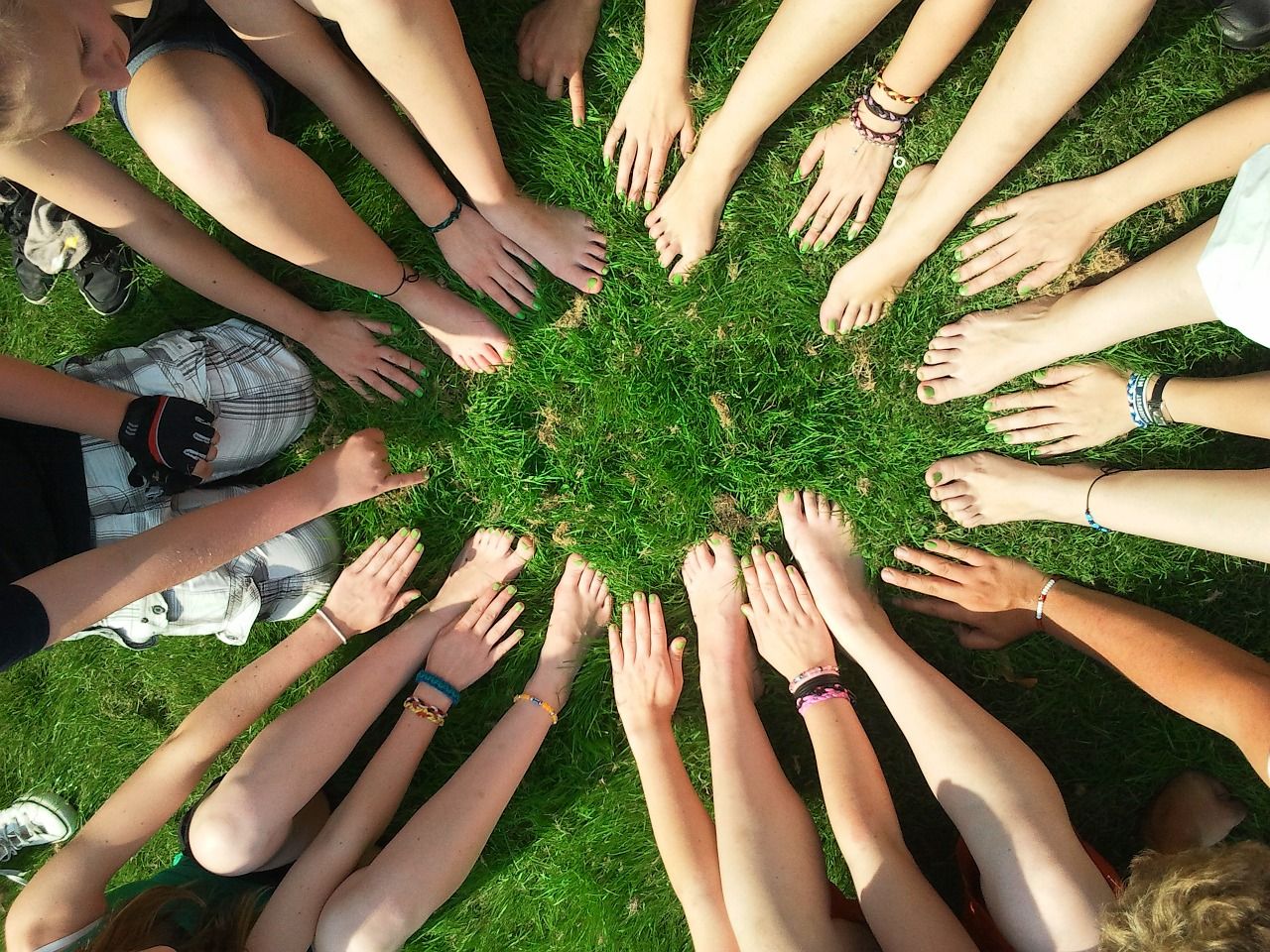How To Access the Untapped Wisdom of Teams
Two of the core skills of learning in teams are dialogue and discussion. Consciously moving between these two is crucial but most of us are more familiar with the latter than the former. In this post I explore the difference between the two and outline the conditions needed to apply them, drawing on

The Untapped Wisdom of Teams
“By design and talent” wrote Bill Russell of the legendary Boston Celtics team of the 1950s and 60s “we were a team of specialists, but our performance depended both on individual excellence and how well we worked together.”
Russell’s Celtics were so effective as a team that they won eleven NBA championships in thirteen years from 1957-1969 in what came to be known as the Celtics Dynasty. But Russell himself stated that the most special moments of his career weren't winning the championships - they were on the court when the team was in a state of collective flow.
As exceptional as the Celtics were, we don’t have to go as far back as the 1960s to find evidence of great teams – they’re all around us today. Whether it's in sports, science or the performing arts there are many examples of groups that come together to produce results that simply couldn't have been realised alone.
We’ve all probably had glimpses of great teamwork in our own lives, where every one’s strengths complement each other and compensate for individual weaknesses, but these are often fleeting and temporary.
Examples of these learning experiences are few and far between in most schools and universities and in the organisations that many work in after finishing their education. Why is that? If being able to work and learn together in a team can produce such extraordinary results, why do so many of us struggle to do it?
Part of the answer is that team learning and teamwork are skills that must be continuously refined and practiced, not just things that people write on their CVs and talk about in job interviews.
They’re also severely neglected in the educational system where the wrong type of competition is often emphasised over collaboration – it’s more about working in isolation to be the best than working together to create mutually beneficial outcomes.
Why Team Learning is So Important
Organisations, whether in business, government or the non-profit sector are the key decision makers in our society and the fundamental learning unit of any organisation is the team, not the individual.
This is because almost all important decisions are now made in teams, either directly or through teams turning individual decisions into action. Individual learning, while important, is far less useful for organisations because it's possible to learn something and fail to transfer that knowledge to others.
If teams learn on the other hand, they can become a “microcosm for learning throughout the organisation” as management thinker Peter Senge puts it in his book on learning organisations, The Fifth Discipline.
Insights gained are put into action. Skills and practices developed can be shared with other teams. And a team’s accomplishments can establish a standard for the larger organisation and eventually for other organisations.
If the way we work in teams is central to the way our organisations work and ultimately to the way our world works then it’s in all of our interests to develop the skills that allow us to do so more effectively.
We all need become better at doing collaboration and learning together, not just talking about it, if we’re going to thrive in our lives and careers.
What Does Good Team Learning Look Like?
Senge defines team learning as “the process of aligning and developing the capacity of a team to create the results its members truly desire”. In order to do this, it’s important that team members are aligned under a shared vision and that they’re all committed to mastery at the individual level but this isn’t enough.
Although it involves individual skills and areas of understanding, team learning is a collective discipline. It is meaningless to say that I, as an individual, am mastering the art of team learning just as it is to say that I’m mastering the practice of being a great football team.
The skills at the core of this collective discipline of team learning are dialogue and discussion, the two distinct ways that teams interact and these can only be experienced and refined in a group setting.
Contemporary physicist David Bohm, who developed a theory of dialogue and discussion in Thought As A System notes that these two skills can be complementary but that most teams lack the ability to distinguish between the two and to move consciously between them. As Bohm points out, the fundamental difference between them can actually be distinguished by examining the roots of both words.
The roots of the word dialogue are from the Greek "dialogos" – dia means through and logos means the word, or more broadly the meaning. Bohm suggests that the original meaning of dialogue, as the Ancient Greeks used it, was “a free flow of meaning between people in the sense that a stream flows between two banks, which allows the group to access a pool of common meaning that cannot be accessed individually."
Discussion, by contrast, has the same root as percussion and concussion and is derived from the Latin verb "discutere" literally meaning to dash to pieces or agitate. A discussion is something comparable to a game of tennis where we’re hitting the ball back and forth between us, which means that the subject of interest can be an analysed and dissected from many points of view.
However, the ultimate objective is to win by having one’s views accepted by the group and this relegates the process of thinking together in search of the truth to a position of secondary importance.
In dialogue, the purpose is to go beyond any one individual’s understanding and to genuinely think together – if it’s being done right, it shouldn't feel like anyone is trying to win.
This doesn’t mean that there’s an absence of disagreement or conflict resulting in groupthink but instead, differences are dealt with in a way that makes them the source of new and valuable insights rather than bickering.
Conditions for Good Dialogue
While there’s nothing inherently wrong with discussion, it’s so pervasive in team learning and group decision making that gatherings almost always descend into certain individuals expressing their views strongly and others passively agreeing with one of these more forceful members of the group.
Many of us don’t actually know how to engage in good dialogue, even though we may have experienced it, but Bohm provides us with a simple framework of the three conditions necessary for this to take place:
1) The Suspension of Assumptions
Suspending your assumptions means holding them as if they were hanging in front of you – it doesn’t mean throwing them out, suppressing them or not expressing your opinion. It just means being aware of your existing beliefs and holding them up for examination, which simply cannot be done if you’re defending them or unconscious of them as is often the case in a discussion.
2) Seeing Each Other as Colleagues
Dialogue only works when team members see each other as colleagues seeking greater insight. The conscious act of thinking of one another as equals contributes towards interaction as equals – this may sound simple but it can make a profound difference and I’ve had direct experience of it at the IO Collective Retreat and the Hive Global Leaders program which I discuss in more detail here.
3) A Facilitator to Hold the Context of the Dialogue
Our natural thought patterns pull us toward discussion and away from dialogue so the facilitator’s role is to make sure that the process continues to run smoothly and that the group as a whole remains responsible for the outcomes. The facilitator also keeps the dialogue moving and can contribute at appropriate times from a unique and powerful perspective that isn’t accessible to any of the other members of the group.
The Takeaway
If these conditions are in place and there is commitment to put them into practice, then all members of the team can end up with a far better grasp of the issues discussed.
In its nature, dialogue is divergent and discussion is convergent – both can lead to new actions but actions often emerge as a by-product of dialogue, whereas they are almost always the focus of discussions.
Fundamentally, in order to fully access the magic of team learning in organisations, we need to master the art of consciously moving between dialogue and discussion on a regular basis. The more often we do this, the more we’ll start to see that the whole can be far more than the sum of its individual parts.

